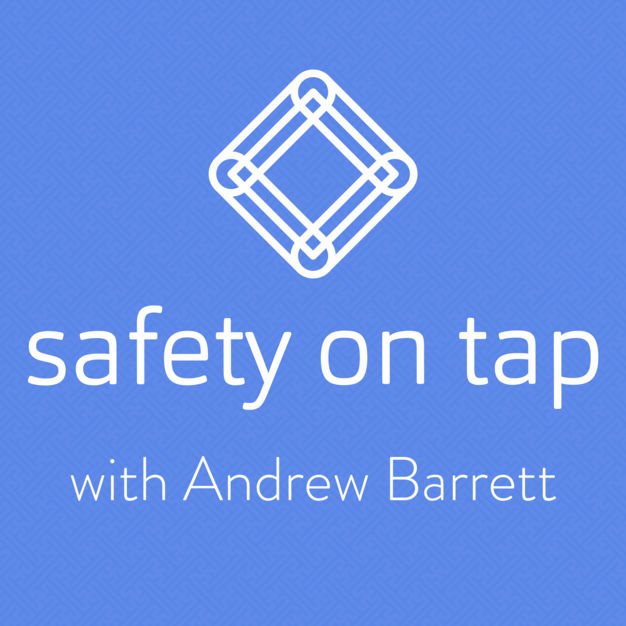
Safety on Tap
Andrew Barrett | Growing leaders | Drastically improving health & safety
The Safety on Tap podcast is for leaders (yes, that's you!) wanting to grow themselves and drastically improve health and safety along the way. We bring you free-flowing ideas, perspectives and stories from interviews with only the most interesting people - to help you take positive, effective and rewarding action. Nice!
- 58 minutes 15 secondsEp222: Are we doing enough? H&S governance gets new high-quality guidance, with Chris Jones & Craig Marriott
Are we doing enough? Is the fundamental question of H&S governance. And the answer, it seems at least in New Zealand, is largely not one given with confidence. And beyond NZ, the answer sometimes seems vague, unclear, or uncertain. Governance arguably is the lynchpin around which all health and safety performance relies - so there is something in this conversation for everyone.
Hey, it’s Andrew, and this is Safety on Tap.
Since you're listening in, you must be a leader wanting to grow yourself and drastically improve health and safety along the way. Welcome to you, you're in the right place. If this is your first time listening in, thanks for joining us and well done for trying something different to improve! And of course welcome back to all of you wonderful regular listeners.
New Zealand has had its fair share of problems with health and safety. Catalysed by the Pike River disaster, new legislation introduced in 2015 styled off the Australian harmonised model promised to strengthen many aspects of health and safety including better control of risk, clearer duties for officers of the organisation, and greater clarity to support regulatory activities. The sad news is not much is changing, with health and safety performance lagging well behind similar regimes in countries like Australia and the UK.
Existing guidance was created around 2015 for the new duties imposed upon senior managers and directors of organisations, called 'The Blue Book'. It's clear that whilst well. Intended, this simply has not been enough, with the backdrop of tumultuous government policy for health an safety, constrained funding, and claims of bare incompetence at Worksafe NZ.
The new Good Practice Guide for Health and Safety Governance was led by the NZ Institute of Directors, in close collaboration with Worksafe NZ, the Business Leaders Health and Safety Forum, and the General Manager Safety Forum. The Steering Group was led by Chris Jones on behalf of the GM Safety Forum, and the Lead Author and Expert Advisor is Craig Marriott, both of whom join me in today's conversation.
Chris Jones is an experienced strategic health and safety leader, having had Head of Safety roles in both the UK and NZ, in rail, poisons and corrections, and now at global dairy giant Fonterra. He has also worked in health and safety lead roles within the NZ government, and a swathe of industry, regulatory, and expert advisory groups and government consultative committees. Chris is fast becoming one of the most popular health and speakers in this part of the world.
Craig Marriott is currently consulting under his own brand, having most recently been the General Manager HSEQ at FirstGas, as well as the Chairperson of the Safety Innovation Community in NZ. With a background in high hazard industries, things that really go boom, and the regulation and creation of safety cases in both the UK and NZ, Craig's experience spans both senior health and safety positions, and a diversity of consulting leadership roles. Craig is both a keynote speaker and author of Challenging the Safety Quo.
Chris and Craig are arguably two of the most well known and well respected senior health and safety professionals in New Zealand today, and both have spent time working in senior roles at Worksafe NZ. It's no wonder they've been able to bring their knowledge and leadership to this impressive piece of work on health and safety governance along with a committee of clever and hard working colleagues.
Let's talk health and safety governance, with Chris Jones and Craig Marriott:
31 July 2024, 1:18 am - 54 minutes 21 secondsEp221: Get outside your lane, with Gareth Lock
Full show notes: www.safetyontap.com/ep221
This is a conversation about a really important mission to improve health and safety. It's also about extreme difficulty, persistence, and how being professional might actually mean straying far outside your one specific professional domain.
Hey, it’s Andrew, and this is Safety on Tap.
Since you're listening in, you must be a leader wanting to grow yourself and drastically improve health and safety along the way. Welcome to you, you're in the right place. If this is your first time listening in, thanks for joining us and well done for trying something different to improve! And of course welcome back to all of you wonderful regular listeners.
Today my guest is Gareth Lock. Gareth doesn't easily fit in a box or under a single label, as you'll hear in a moment. Military, flying, human factors, HOP, and diving.
I've wanted bring a conversation with Gareth to you for a while, for three reasons. First, the people I know and trust have said wonderful things about him. Second, he is generous - his writing, travel, courses, and social media contributions are a cut above the rest. Just following him on Linkedin for three months and that is like a mini-course on its own. And third, Gareth is tackling some wicked problems in the health and safety space, and I had to see what lessons he is learning from what is very tough work.
Here's Gareth:
30 May 2024, 12:17 pm - 15 minutes 35 secondsEp220: What you are missing from new beginnings, with Andrew Barrett
Full show notes: www.safetyontap.com/ep220
The piece you might be missing as you try to build new things and all your efforts for making change, might actually be deliberately blowing things up.
Hey, it’s Andrew, and this is Safety on Tap.
Since you're listening in, you must be a leader wanting to grow yourself and drastically improve health and safety along the way. Welcome to you, you're in the right place. If this is your first time listening in, thanks for joining us and well done for trying something different to improve! And of course welcome back to all of you wonderful regular listeners.
"Closing time, open all the doors and let you out into the world"
The song Closing Time by Semisonic is one of those classic tunes of my transition into adulthood.
"Closing time, one last call for alcohol
So, finish your whiskey or beer
Closing time, you don't have to go home
But you can't stay here"
After it was released in 1998 it was pretty common that this song was the very last song played in the bar or pub before the lights got turned back on and everyone had to leave.
"So gather up your jackets, move into the exits,
I hope you have found your friends
Closing time, every new beginning
comes from some other beginnings end"
It turns out that this anthem of the very late night party people had nothing to do with going out of drinking, or even going home.
The whole song is a metaphor for the birth of a child. Lead singer Dan Wilson was soon to become a father as he was writing this song, and the literal meaning of the last song in fact came to be a much deeper insight into the realities of getting bounced from the womb into the world.
20 May 2024, 12:47 pm - 1 hour 35 secondsEp219: Aligned goals, broader approach - Organisational psychology, with Diya Dey
Full show notes: www.safetyontap.com/ep219
Have you ever had an idea, or heard an idea, thinking it was brilliant, only to realise that the idea is not that new, and didn't come from where you thought it did? Welcome to the discipline of organisational psychology. Hey, it’s Andrew, and this is Safety on Tap. Since you're listening in, you must be a leader wanting to grow yourself and drastically improve health and safety along the way. Welcome to you, you're in the right place. If this is your first time listening in, thanks for joining us and well done for trying something different to improve! And of course welcome back to all of you wonderful regular listeners. Industrial and organisational psychology, or IO psych as it is often called, is well over 100 years old. It was labelled as the exploration of 'real life' psychology. It's official birth is suggested to be 1913, with the publication of the first text on the subject called Psychology and Industrial Efficiency, by Hugo Munsterberg. How is it that such a field, with 100 years of history and research and development, is not that familiar to most of us working in health and safety? Well today I hope that will change just a little, as I dialogue with Diya Dey, an organisational psychologist based in Melbourne Australia. Diya has experience in both consulting and working in-house, and is currently in a organisational psychology role focussed on organisational wellbeing in the Victorian State Government. When I first met Diya, I found her curious, and generous. A great combination in my book, so it was only natural that I would invite her into a conversation with the Safety on Tap community about how industrial and organisation psychology relates to, and can enhance, work health and safety. Here's my conversation with Diya Dey:
16 April 2024, 2:35 pm - 14 minutes 32 secondsEp218: An answer for everything with Andrew Barrett
Full show notes: www.safetyontap.com/ep218
You seem to have answers for everything, he said to me. He was 100% right and 100% wrong at the same time. This is a podcast about how that can be, and how you can engage with better answers.
Hey, it’s Andrew, and this is Safety on Tap.
Since you're listening in, you must be a leader wanting to grow yourself and drastically improve health and safety along the way. Welcome to you, you're in the right place. If this is your first time listening in, thanks for joining us and well done for trying something different to improve! And of course welcome back to all of you wonderful regular listeners.
Before you think that this episode will be a gratuitous brag about how good I think I am wrapped up in some parable of a story, stay with me for a few minutes.
When he said to me, 'you seem to have answers for everything', he WAS both right and wrong at the same time.
He was right because to him, it did seem that I had answers for lots of the things we were talking about and working through in our coaching together. He was wrong, because I wasn't really giving him answers in the way that questions are usually asked, or problems are usually solved with solutions. What I was giving him was responses. Responses to his question, to his story, to his context.
Responses aren't answers. Responses are what we do when it's our turn, in a dialogue two or more people engage in a turn-taking exchange. Dialogue is an ancient word, very central to modern human experience, which comes from two Greek words put together: dia- translates to through, and logos translated to meaning, dialogos, or dialogue, the movement of flow of meaning through the people involved.
You can see turn taking all the time, which isn’t dialogue. It's more like tennis. One person serves, another receives and returns the ball. The object of tennis, and the object of a huge proportion of our interactions with other people, is to get to the end, to resolve the point, usually in favour of one person or the other.
18 March 2024, 2:15 am - 50 minutes 18 secondsEp217: Some nuances to safety professional practice with Tim Lie
Full show notes: www.safetyontap.com/ep217
What does it sound like, to have permission to not focus on certain things in health and safety? What one concept are we missing from risk management that makes a massive difference?
Hey, it’s Andrew, and this is Safety on Tap.
Since you're listening in, you must be a leader wanting to grow yourself and drastically improve health and safety along the way. Welcome to you, you're in the right place. If this is your first time listening in, thanks for joining us and well done for trying something different to improve! And of course welcome back to all of you wonderful regular listeners.
My guest today is Tim Lie. Is he a safety professional? I ask him that, so you'll have to wait and see what he says. What I can tell you is that his roles have included group HSE responsibilities, lifecycle alignment, culture, and capability. You don't often hear those things in people's job titles, do you?
I met Tim a while back when I was invited along to a national health and safety team workshop. It took all of 2 minutes for me to be really curious about Tim. He is broadly read, he has both a practitioner and academic background, he is an engineer who loves solving problems but is hyper tuned into the messy people side of business, and he talks in a way that gives you a deep insight into how his brain works, which is fascinating.
So that's why I wanted to introduce him to you! We had a wide ranging chat, dove deep on a few things but still covered a fair bit of ground. I hope you enjoy, here's my chat with Tim Lie:
14 March 2024, 4:11 am - 19 minutes 27 secondsEp216 Resonance and understanding, with Andrew Barrett
Full show notes: www.safetyontap.com/ep216
Radio, television, and the content we consume have changed enormously since I was a kid. This is a podcast about the physics, and the metaphor of this change and how we can change too, but only if we want to remain resonant.
Hey, it’s Andrew, and this is Safety on Tap.
Since you're listening in, you must be a leader wanting to grow yourself and drastically improve health and safety along the way. Welcome to you, you're in the right place. If this is your first time listening in, thanks for joining us and well done for trying something different to improve! And of course welcome back to all of you wonderful regular listeners.
There used to be just a handful of TV stations, and a handful of radio stations. It was kind of easy as a kid, because the TV guide fit onto a single page in the newspaper, and the discussion about what to watch was easier because there were only a few options to choose from. Cartoons on Channel 7 on the afternoons we were allowed to watch TV, then Channel 2 at 6pm for the ABC news, on Wednesdays the highlight of the TV week was a bit of police drama with Blue Heelers on Channel 7 at 8.30, and Friday night football on Channel 9 kicked off the sporting entertainment of the weekend.
Bandwidth used to be a constraint. On the radiomagnetic spectrum, there are only a limited number of frequencies which TV or radio could use to broadcast their content to you. Even if you have a digital radio in your car or at home, you can still see the remnants of this bandwidth constraint, when a radio station includes a number in the name - Mix 106.5, 104.1 Today FM.
The number is the actual frequency (measured in Mega Hz for FM stations), the actual number of times the wave goes up and down per second. That number meant it was easy for you to tune into the right station, to listen to what they had to offer, loud and clear. If you were one point off, one tweak of the dial, and not only did you have the wrong frequency, you had garbled, snowy, or no radio content to listen to.
There is no doubt that the use of the radiomagnetic spectrum for communication, and its associated constraint of a limited number of frequencies, shaped our culture enormously.
Until the constraint disappeared. With the internet we went from limited bandwidth to broadband - because we jumped off the radiomagnetic spectrum and entered a world of limitless channels to choose from, unlimited space for broadcast, and people who were more than happy to no longer be constrained to the 3 or 5 channels they used to have to choose from.
4 March 2024, 3:24 am - 57 minutes 23 secondsEp215: The intersection of systems innovation, creative design & systems thinking, with Satyan Chari
Full show notes: www.safetyontap.com/ep215
Are the ideas of science at odds with a humanist approach? Can we solve all the big problems with big data and analytics? Can you really succeed with tools and practices and not understand the philosophy behind them?
Hey, it’s Andrew, and this is Safety on Tap.
Since you're listening in, you must be a leader wanting to grow yourself and drastically improve health and safety along the way. Welcome to you, you're in the right place. If this is your first time listening in, thanks for joining us and well done for trying something different to improve! And of course welcome back to all of you wonderful regular listeners.
The healthcare industry is one of the biggest growing in many economies around the world as population growth continues, more people are living longer, and advances in medical care and pharmaceuticals are preventing more and more illness and death than ever before.
Dr Satyan Chari has been hard at work in this sector for many years, and I've been trying to get him on the podcast for ages. He is a great communicator, has done some cool collaborative improvement projects, and has always struck me as someone who knows his stuff but is anything but a know-it-all.
It's been a long time coming, and a little longer than usual, I hope you enjoy, here's Satyan:
8 January 2024, 3:31 pm - 11 minutes 9 secondsEp214: Making 2024 Your Best Year Yet
Full show notes: www.safetyontap.com/ep214
Two quick questions for you: first, did you get what you got in 2023 by design, or did your year kind of happen to you by accident? Second question, what's going to change for you in 2024? I have gifts for you inside, keep listening!
Hey, it’s Andrew, and this is Safety on Tap.
Since you're listening in, you must be a leader wanting to grow yourself and drastically improve health and safety along the way. Welcome to you, you're in the right place. If this is your first time listening in, thanks for joining us and well done for trying something different to improve! And of course welcome back to all of you wonderful regular listeners.
This episode will be released on the 18th of December, and many of you may have even stopped work for the year. The past few weeks are a unique time in the yearly cycle, when the health and safety leaders I work with turn their minds to those two important questions I just asked:
- Did you get what you got in 2023 by design, or did your year kind of happen to you by accident?
- What's going to change for you in 2024?
15 December 2023, 1:27 pm - 1 hour 2 minutesEp213: Human Factors, Error, Blame & Systems Thinking, with A/Prof Gemma Read
We are now realising that just focussing on preventing bad stuff is a pretty limited view of health and safety, and that many of our approaches are limited in the application and the quality of their outputs. So how would we broaden out focus to study and improve normal work? It turns out there are theories, models, and people who've doing this for 80 years. Allow me to introduce Human Factors, Ergonomics, and Systems Thinking.
Hey, it’s Andrew, and this is Safety on Tap.
Since you're listening in, you must be a leader wanting to grow yourself and drastically improve health and safety along the way. Welcome to you, you're in the right place. If this is your first time listening in, thanks for joining us and well done for trying something different to improve! And of course welcome back to all of you wonderful regular listeners.
My guest today is Associate Professor Gemma Read, from the Centre for Human Factors and Sociotechnical Systems, at the University of the Sunshine Coast.
We talk about one of Gemma's journal papers to bring this dialogue to life. The paper, called "State of science: evolving perspectives on human error", is really quite readable (click here to download it) [hyperlink URL is https://research.usc.edu.au/esploro/outputs/journalArticle/State-of-science-evolving-perspectives-on/99571607402621]
Here's Gemma:
8 December 2023, 6:02 am - 13 minutes 22 secondsEp212: Three ways of getting things done, with Andrew Barrett
Full show notes: www.safetyontap.com/ep212
Hey, it’s Andrew, and this is Safety on Tap.
If we want to improve our performance in ANY area of our life, work or otherwise, there are ONLY three ways to do it, three kinds of how before we decide what to do. For most of us, the decisions we make every day, many times a day, about which of the three ways to take, is invisible. Until now.
Since you're listening in, you must be a leader wanting to grow yourself and drastically improve health and safety along the way. Welcome to you, you're in the right place. If this is your first time listening in, thanks for joining us and well done for trying something different to improve! And of course welcome back to all of you wonderful regular listeners.
Most people who go to the gym exercise more than people who exercise on their own because of the very fact that they are at a gym, and there are people around them are working out. And research suggests that you tend to exercise at the level of those people around you, whether they are high fitness or low fitness, you’ll tend to match them.
Exercising at home is entirely possible for almost every person on the planet, and free.
But when we invest in doing it with help and with the right kind of others, it almost always accelerates our results.
Take that up a notch with a personal trainer, where you get more tailored help for your situation, you have built-in accountability and boosted motivation because of the design of the help/support you invest in (the PT).
I mentioned there are three ways to improve performance, and only three. Everything you do in your life fits into one of these three categories.
27 October 2023, 5:20 am - More Episodes? Get the App
Your feedback is valuable to us. Should you encounter any bugs, glitches, lack of functionality or other problems, please email us on [email protected] or join Moon.FM Telegram Group where you can talk directly to the dev team who are happy to answer any queries.
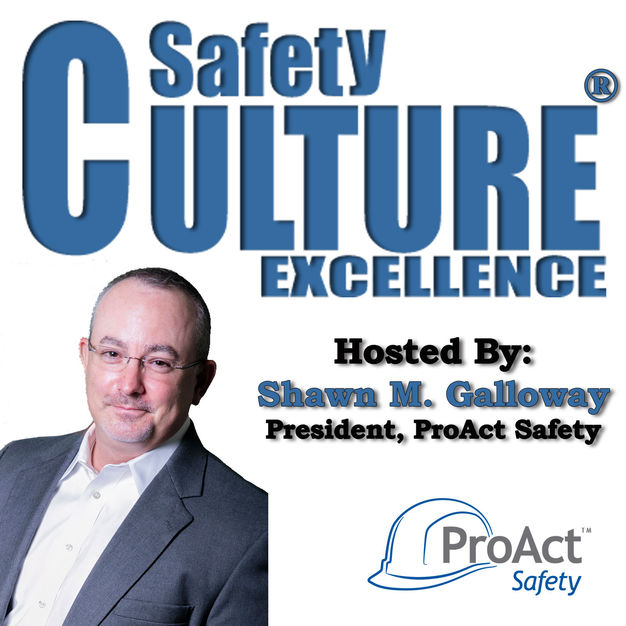 Safety Culture Excellence®
Safety Culture Excellence®
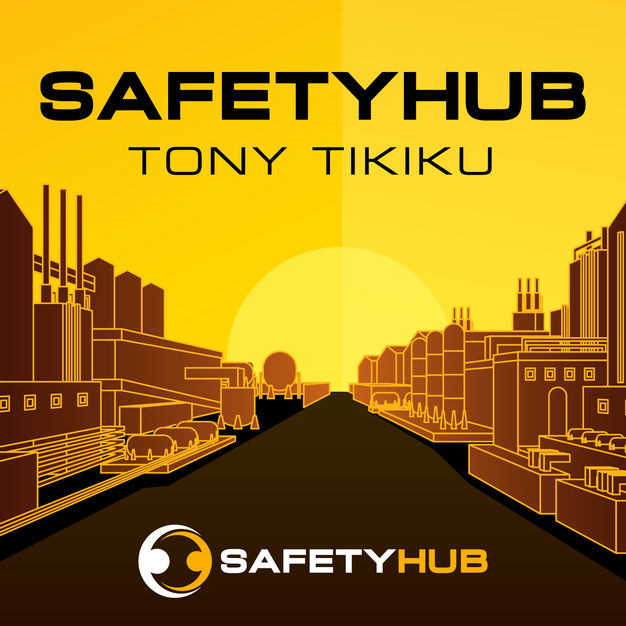 Safety Hub - Workplace Health and Safety with Tony Tikiku
Safety Hub - Workplace Health and Safety with Tony Tikiku
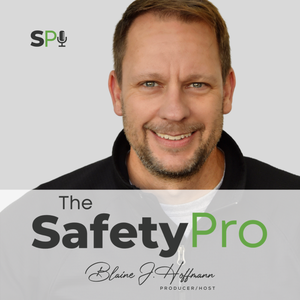 The Safety Pro Podcast
The Safety Pro Podcast
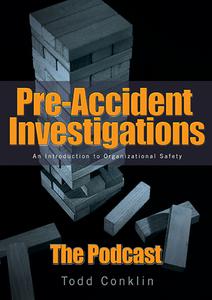 PreAccident Investigation Podcast
PreAccident Investigation Podcast
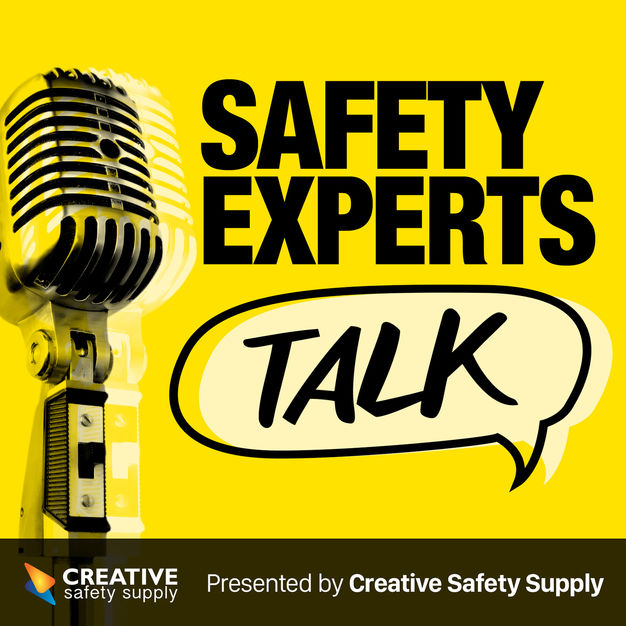 Safety Experts Talk
Safety Experts Talk